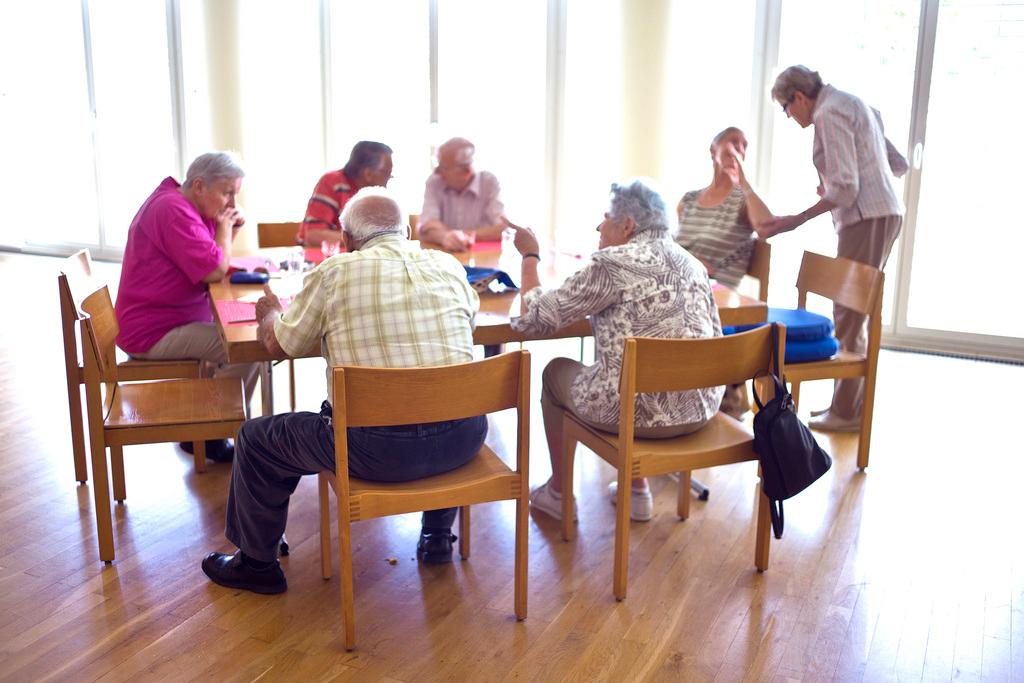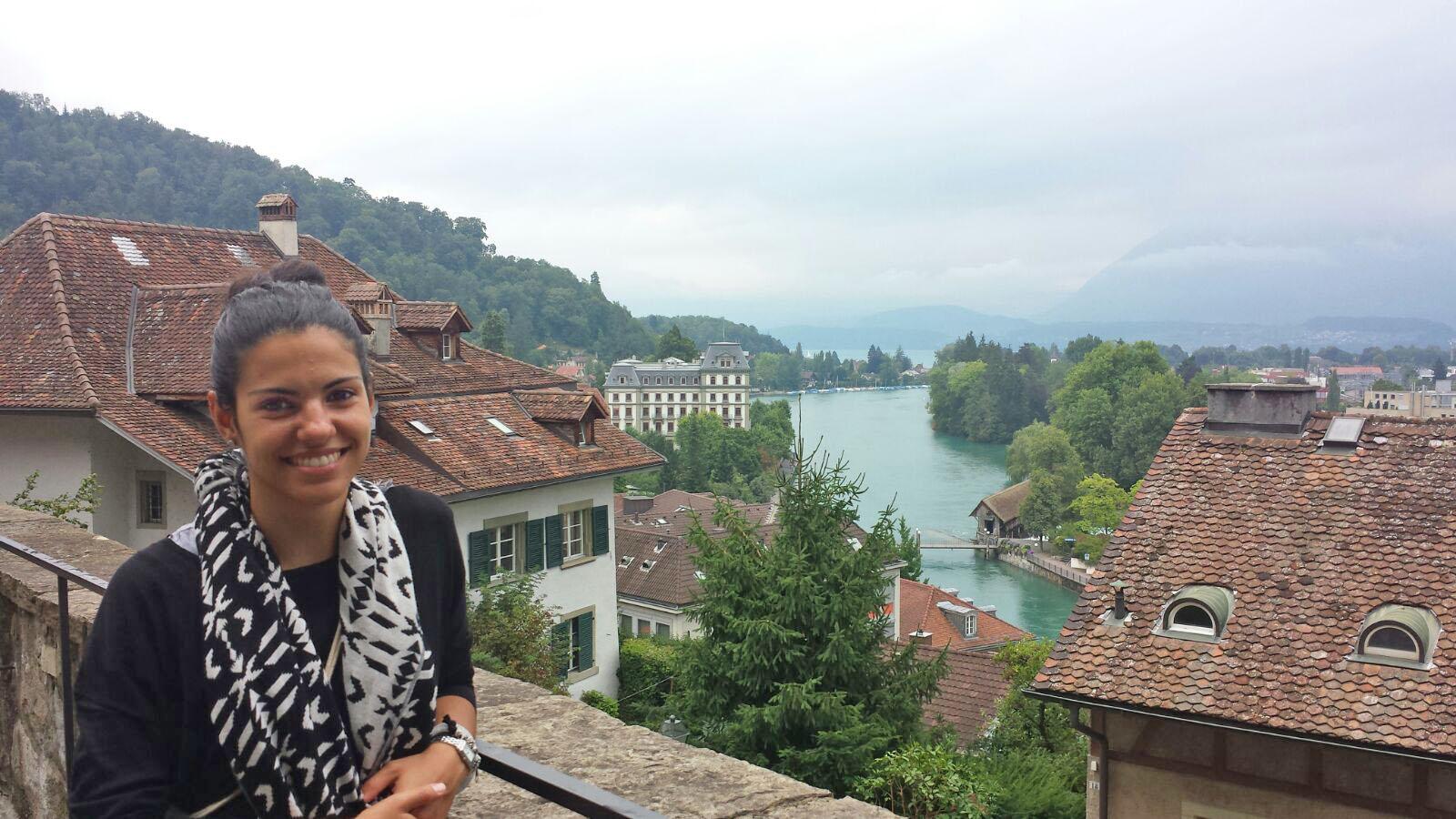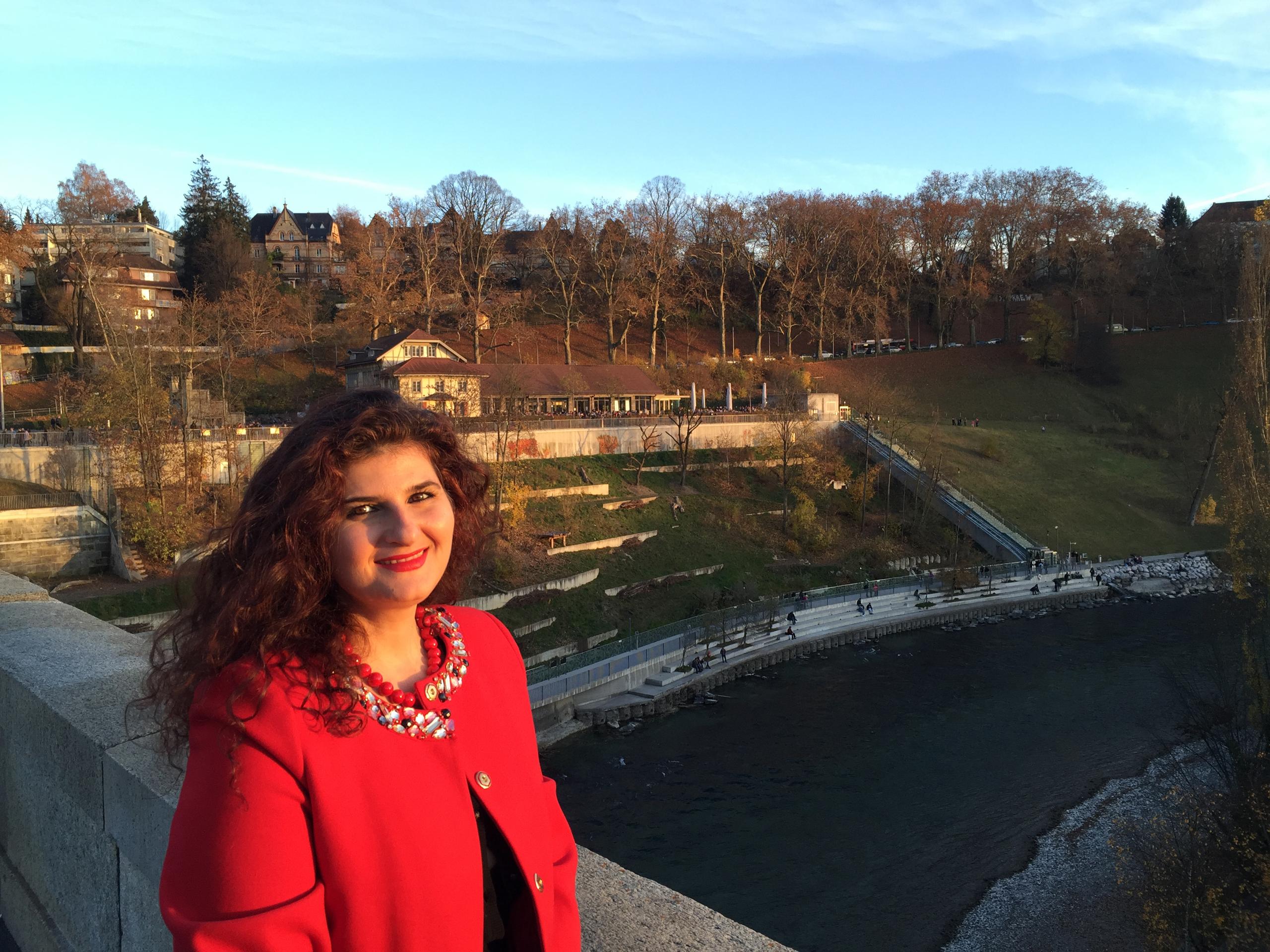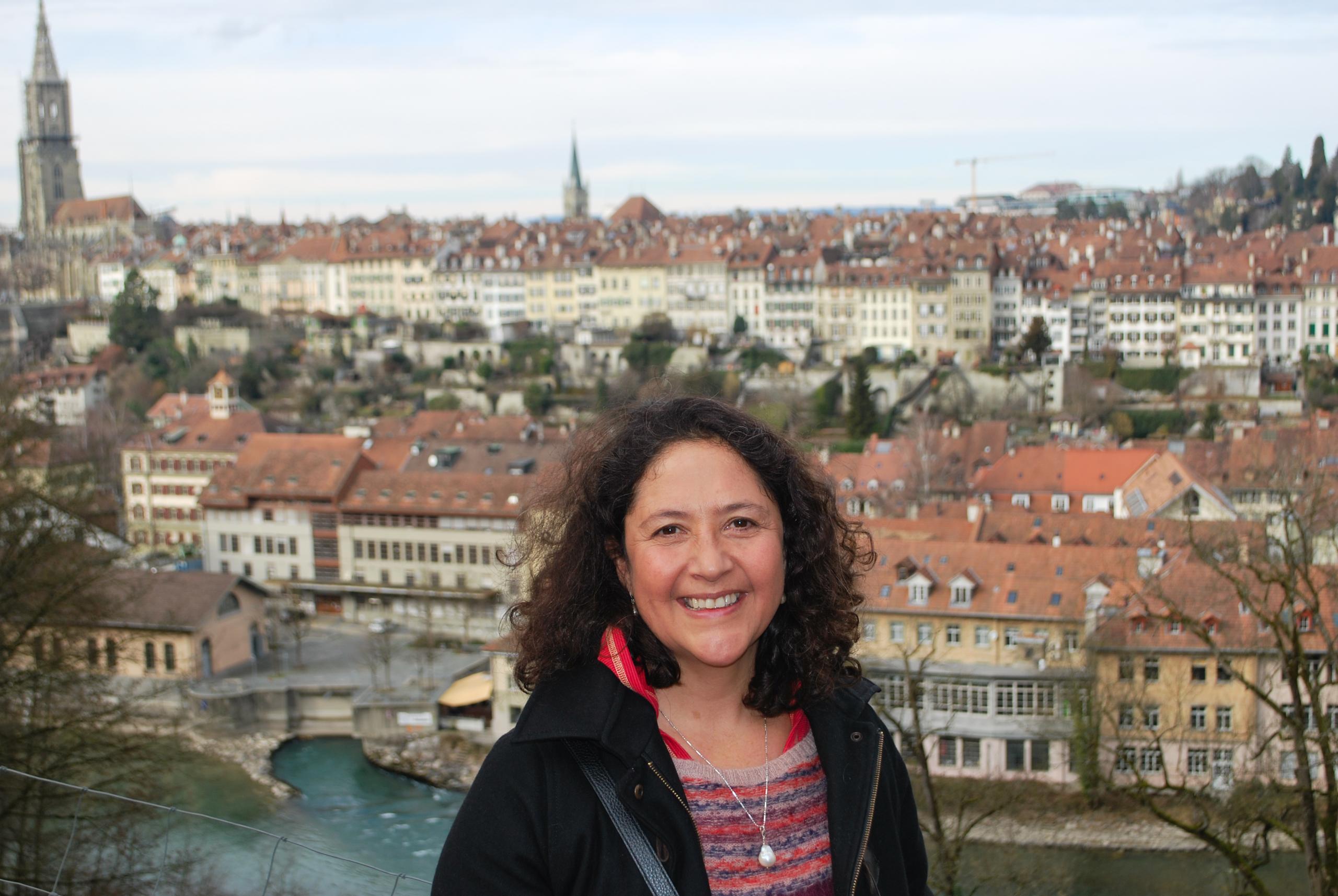Information as a means to integration

They came to Switzerland as foreign labourers or refugees, and likely never thought they would spend their old age in the country. A new project aims to make ageing immigrants aware of services for seniors.
Placecards bearing a mix of Swiss and foreign names are propped on tables in the Swiss Red Cross training centre outside the Swiss capital, Bern. It’s the first day of “Gemeinsam in die Zukunft” – “Together into the future” – a project initiated in 2014 by cities in canton Bern, including the capital of the same name, as well as Biel and Langenthal.
The new students – ranging in age from 30 to 64 – return from their morning break, chattering in German. For most of them it’s a foreign language. As representatives of the Italian, Spanish, Portuguese, Turkish, Albanian, Serbian, Croatian and Tamil communities in Switzerland, they’ve come to learn how to moderate roundtable discussions among their communities’ ageing members.
The goal of the programme is to help ageing immigrants gain access to official information on topics such as nutrition, mental health, social insurance, and retirement, and to inform them of services that are available.
“We’ve seen from first-hand experience and also heard from specialised agencies that this generation of 1960’s and 70’s immigrants, women and men, are not profiting from or even using the local government’s services for the ageing,” says Sibylle Vogt, the course coordinator.
“Either they don’t know about the services, or they have inhibitions, perhaps due to language difficulties. What is clear is that they’re lacking information about growing old in Switzerland,” she tells swissinfo.ch. “There’s a need for knowledge, for exchange, for advice, for access.”
Reaching the target group
In 2014, 11% of residents over 60 years of age in the German-speaking city of Bern were foreigners – close to the nationwide average. The Bern project is aimed at 2,000 older foreigners in the city who aren’t likely to seek out information in German. This includes former seasonal workers from Spain and Italy, but also refugees from the Balkan wars of the 1990s. Many of these people have maintained their own culture and language in their tightly knit communities.

More
Do immigrants have to integrate to be happy in Switzerland?
According to Evelyn Hunziker of the city of Bern’s Competence Centre for Ageing, a local government agency supporting the project, it makes sense to reach out to immigrants.
As an example, “people who came here from Turkey 40 years ago have an idea of a nursing home in Turkey in 1960 or 1970 – a room with a dozen people in iron beds,” she says. “And they assume that a nursing home here, today, is equally terrible.” Without information, they have no chance to revise their concept, she says. “It’s important that they can see that in the 21st Century it’s different. In Switzerland, and in Turkey as well.”
Another issue is healthcare. Immigrants tend to be less healthy than Swiss citizens, says Hunziker. Providing them with information about nutrition and physical activity can improve their well-being and health and in addition avoid costs in the long run.
“If we don’t do anything, it ends up costing much more than if we spend just a little to reach out,” she says, “regardless of whether people are Swiss or foreigners.”
Contacting these ageing residents has proven to be difficult, however. Many old immigrants are hesitant about trusting the government, says Hunziker.
“It’s clear that they would rather get their information from their contemporaries – who speak their language – than from an official agency.”
Thus the programme “Together into the Future” was born.
The moderators
Fourteen people – two men and 12 women – have registered for the current class, which started in October 2015. Besides coming from a variety of countries, they have a range of backgrounds, from translator to adult educator to geriatric nurse.
One of the youngest students is Paola Oggiano of Italy.

More
Viewpoint: Paola Oggiano of Italy
Being part of the course is a unique experience, she says. “I always like to be with people from different cultures and different languages.”
In addition to learning where information can be obtained, the students learn methods for bringing that information to the members of their community. How do I lead a roundtable discussion? Where do I find the participants? How do I help people develop the confidence to go to an official office?
Suela Kasmi, 42, took part in the “Together into the Future” pilot programme in 2014.

More
Viewpoint: Suela Kasmi of Albania
Some languages are spoken by members of very different communities. Yolanda Gama of Mexico represents a range of Spanish-speakers in Switzerland.

More
Viewpoint: Yolanda Gama of Mexico
People like Paola Oggiano, Suela Kasmi and Yolanda Gama are referred to in Bern as “Schlüsselpersonen” – key mediators between the local government and the immigrants’ communities.
“Broad support is important for us,” says Evelyn Hunziker. “The more people we know from the various cultural circles, the more information we get about what the people in these communities need.”
Support for immigrants
Switzerland is apparently a good place to grow old, regardless of whether you’re a citizen or a foreigner. The country placed first out of 96 countries overall in the 2015 Global AgeWatch Index, which ranks countries annually according to the social and economic wellbeing of their elderly residents.
“With nearly 24% of its population over 60, Switzerland has a range of policies and programmes on active ageing, promoting capability, health and the enabling environment for older people,” says the AgeWatch report. The country is rated high in areas such as public transport, life expectancy (83 years for the Swiss – only one year less than Japanese, who live the longest), and support from friends and family.
Immigrants aren’t the only old people who need support. Why, then, are Swiss agencies and local government offices so interested in helping them?
“The mission statement of the city of Bern says that we want the quality of life of old people in the city to be high,” says Hunziker, “and that naturally involves being informed about the services that are available.”
According to course coordinator Vogt, “These are services that everyone has a right to, but many immigrants don’t feel they have that right to information, to financial support. And we hope to be able to convince them that they can demand equal opportunities.”
Hunziker agrees.
“We’re here for everyone, not just for the Swiss.”

In compliance with the JTI standards
More: SWI swissinfo.ch certified by the Journalism Trust Initiative

You can find an overview of ongoing debates with our journalists here . Please join us!
If you want to start a conversation about a topic raised in this article or want to report factual errors, email us at english@swissinfo.ch.